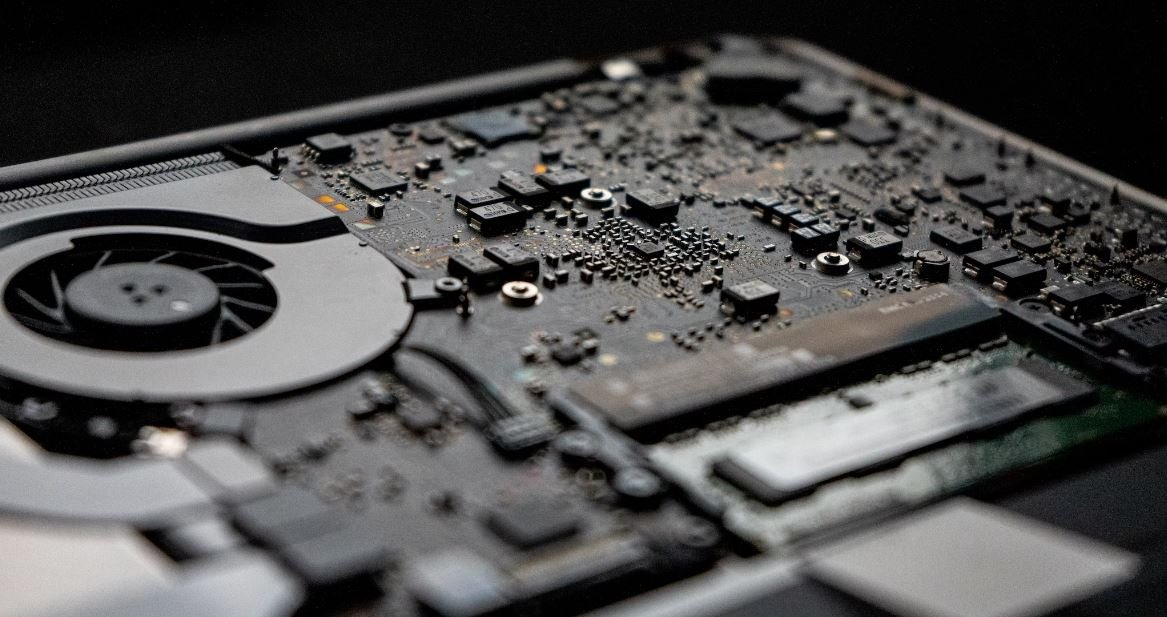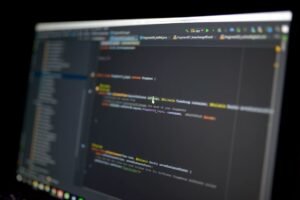AI Deepfake Voice Music
With the rapid advancement of artificial intelligence (AI) technology, deepfake voices in music have become a controversial topic. AI deepfake voice technology allows for the creation of realistic-sounding, but entirely computer-generated, voices that can mimic the vocals of real singers. This technology has both raised ethical concerns and opened up new creative possibilities in the music industry.
Key Takeaways:
- AI deepfake voice technology enables the creation of realistic computer-generated voices in music.
- It raises ethical concerns regarding authenticity, intellectual property, and consent.
- Despite the controversies, AI deepfake voices offer new artistic possibilities and creative experimentation.
AI deepfake voices have the potential to revolutionize the music industry by offering new ways to create and experience music. In recent years, several AI models have been developed that can convincingly imitate the singing voice of specific artists. These models use sophisticated machine learning algorithms to analyze and replicate the unique characteristics of a singer’s voice, producing highly realistic imitations.
The Ethical Debate
The emergence of AI deepfake voice technology has sparked an ethical debate in the music industry. On one hand, some argue that AI deepfake voices can be used for nefarious purposes, such as manipulating and impersonating artists. This raises concerns over authenticity, intellectual property rights, and consent. If an AI-generated voice can perfectly mimic a famous artist, it could potentially lead to copyright infringement or deceptive practices.
On the other hand, proponents of AI deepfake voices see them as a tool for artistic expression and experimentation. Musicians can use this technology to explore new creative dimensions, push the boundaries of traditional vocal performances, and collaborate with virtual artists. It allows for the creation of entirely new voices that might not exist in the real world, opening up endless possibilities for innovation.
The Impact of AI Deepfake Voice Technology
AI deepfake voice technology has already started to reshape the music industry in various ways. Here are some notable impacts:
- Music production: AI deepfake voices can reduce the cost and time required to hire professional singers and record vocals. This makes it more accessible for independent artists and smaller music production studios to create high-quality music.
- Live performances: AI deepfake voices could potentially be used in live performances, allowing artists to present their music in innovative ways. Virtual artists with AI-generated voices could perform alongside human musicians, creating unique and immersive experiences for the audience.
- Virtual influencers: AI deepfake voices can be used in the creation of virtual influencers or characters in the entertainment industry. These virtual entities can have their own distinct voices, adding a new level of authenticity and engagement for the audience.
| Pros | Cons |
|---|---|
| Enables innovative collaborations and sonic experimentation | Raises concerns over authenticity and intellectual property rights |
| Reduces production costs and time for independent artists | Potential for deception and misuse |
| Expands creative possibilities in the music industry | Can perpetuate unrealistic beauty standards in the industry |
While AI deepfake voice technology has its advantages and disadvantages, it undeniably pushes the boundaries of creativity in the music industry. Musicians now have the opportunity to explore uncharted territories, experiment with novel vocal styles, and collaborate with virtual entities. However, it is crucial to address the ethical concerns surrounding the use of AI deepfake voices and establish clear guidelines to protect artists’ rights and ensure transparency for listeners.
Conclusion
The rise of AI deepfake voice technology presents both exciting opportunities and ethical challenges for the music industry. As we continue to explore the possibilities of this technology, it is important to strike a balance between innovation and protecting artistic integrity. By developing responsible frameworks and regulations, we can harness the potential of AI deepfake voices to enrich musical experiences and foster creative growth.

Common Misconceptions
Misconception 1: AI can accurately generate any person’s voice
One common misconception about AI deepfake voice technology is that it can replicate the voices of any person with perfect accuracy. However, this is not entirely true. While AI models have become more advanced, they still have limitations in capturing the nuances and unique characteristics of an individual’s voice.
- AI deepfake voice technology cannot perfectly mimic the voice of a specific person.
- The accuracy of AI-generated voices heavily relies on the quality and quantity of training data available.
- The voice replication may vary depending on the language, accent, and dialect of the person.
Misconception 2: AI-generated music is indistinguishable from human-created music
Another misconception is that AI-generated music can seamlessly blend in with human-created music and be indistinguishable to the average listener. While AI has made significant advancements in generating music, it still lacks the ability to replicate the depth of emotions and artistic intentions that human musicians bring to their compositions.
- AI-generated music often lacks the emotional depth and artistic creativity present in human-created music.
- Human musicians possess the ability to innovate and take risks, resulting in unique and unpredictable musical expressions.
- The use of AI in music creation often requires human input and guidance to achieve desired results.
Misconception 3: AI deepfake voice music will replace human artists
Some people believe that as AI deepfake voice technology advances, it will render human artists obsolete and take their place in the music industry. However, this is far from the truth. While AI can assist in the creation of music, it cannot replace the creativity, passion, and connection that human artists bring to their performances.
- Human artists have the ability to connect with listeners on an emotional level, which AI technology currently cannot achieve.
- The unique experiences and personal stories of human artists fuel their creative process and resonate with audiences.
- AI-generated music lacks the ability to improvise and adapt in real-time during live performances.
Misconception 4: AI-driven music is a threat to musicians’ livelihoods
Another misconception is that AI-driven music poses a significant threat to musicians’ livelihoods, leading to unemployment and a decline in the music industry. However, AI can actually be a valuable tool for musicians, helping them in areas such as composition, production, and sound engineering.
- AI-driven music can free up musicians’ time and energy for more creative endeavors, allowing them to focus on aspects that require human ingenuity.
- Musicians can collaborate with AI technology to enhance their creative process, resulting in unique and innovative musical expressions.
- AI can help musicians reach a wider audience and provide valuable insights into listeners’ preferences and trends.
Misconception 5: AI deepfake voice music poses significant ethical concerns
People often have the misconception that AI deepfake voice music presents severe ethical concerns, such as identity theft or the manipulation of recordings to mislead audiences. While these concerns do exist, they should not overshadow the potential positive applications of AI technology in the music industry.
- AI technology can be regulated and monitored to ensure responsible and ethical use.
- With proper awareness and education, listeners can become more discerning in distinguishing authentic recordings from AI-generated ones.
- The potential benefits of AI in music, such as increased accessibility and personalized experiences, should be considered alongside ethical concerns.

AI Deepfake Voice Music
The advent of artificial intelligence (AI) has brought about many advancements and innovations in various fields. One such remarkable development is the use of AI in creating deepfake voice music. Deepfake technology, initially used for manipulated videos, is now utilized to synthesize voices and produce music that imitates popular artists or creates unique compositions. This article explores ten fascinating aspects of AI deepfake voice music, showcasing its capabilities, implications, and potential future impacts.
1. AI Voice Replication
A breakthrough achieved by AI in the realm of music is the ability to replicate the singing voice of renowned artists. Using deep learning algorithms, AI models can analyze an artist’s vocal style, tone, and nuances, creating remarkably accurate imitations of their singing voice.
2. Transforming Speech into Song
Another intriguing application of AI deepfake technology is transforming ordinary speech into melodious songs. By training AI models to recognize patterns in speech and generate corresponding musical sequences, it is possible to convert any spoken words into impressive musical compositions.
3. Vocal Style Exploration
AI deepfake voice music provides a unique opportunity for artists and musicians to explore different vocal styles that they may not have naturally possessed. Through AI algorithms, artists can experiment and create music in various genres and styles, expanding the boundaries of their artistic expression.
4. Preserving Musical Legacy
With the help of AI deepfake voice music, the legacies of legendary artists can be preserved and continued even after their passing. By capturing their vocal characteristics and creating new songs or collaborations, AI enables the transcendence of time, allowing artists to have a lasting impact on the music industry.
5. Enhanced Music Production
AI deepfake voice music contributes to enhancing the process of music production. By generating musical ideas based on pre-existing compositions, AI can assist composers, producers, and artists in exploring new melodies, harmonies, and arrangements, leading to innovative and captivating musical pieces.
6. Customized Vocal Performances
For singers and musicians, AI deepfake voice music offers the possibility of creating customized vocal performances. By training AI models with their own voice samples, artists can generate personalized backing vocals or harmonies that perfectly complement their individual style, resulting in a more tailored and harmonious musical experience.
7. Collaborative Possibilities
AI deepfake voice music opens up exciting collaborative possibilities within the music industry. Artists can virtually collaborate with past musicians, iconic voices, or even fictional characters, allowing for the creation of unique and unprecedented musical pieces that merge the past and the present.
8. Ethical Considerations
As AI deepfake voice music becomes more prevalent, several ethical considerations arise. The potential misuse of this technology for fraud or deception poses significant concerns. Striking a balance between the artistic and ethical boundaries is crucial to ensure responsible use and to protect the integrity and authenticity of the music industry.
9. Legal Implications
Alongside ethical concerns, the rise of AI deepfake voice music raises various legal implications. Copyright issues, licensing agreements, and intellectual property rights concerning replicated voices and music pose challenges that require careful examination and regulation to navigate the evolving landscape of AI-generated musical content.
10. Future Prospects
The future prospects for AI deepfake voice music are vast and captivating. As AI technology continues to progress, we can envision even more realistic voice imitations, sophisticated vocal expressions, and novel musical creations. The possibilities for self-expression, artistic exploration, and collaborative endeavors within the music industry are boundless.
Conclusion
AI deepfake voice music is a revolutionary development that pushes the boundaries of creativity and technological innovation in the field of music. From replicating renowned artists’ voices to customizing vocal performances and exploring new musical styles, AI’s impact on music production is profound. However, careful consideration of ethical and legal implications is necessary to ensure responsible use and to preserve the essence and authenticity of the music industry. As AI technology continues to advance, the future of AI deepfake voice music promises astonishing possibilities that will shape the musical landscape in unprecedented ways.
Frequently Asked Questions
What is AI Deepfake Voice Music Title?
How does AI Deepfake Voice Music Title work?
Why would someone use AI Deepfake Voice Music Title?
Is AI Deepfake Voice Music Title reliable?
Can AI Deepfake Voice Music Title generate copyright-free music titles?
Are there any ethical considerations related to AI Deepfake Voice Music Title?
What are the limitations of AI Deepfake Voice Music Title?
Is it possible to customize the output of AI Deepfake Voice Music Title?
How can I try AI Deepfake Voice Music Title?
Are there any potential future developments for AI Deepfake Voice Music Title?




